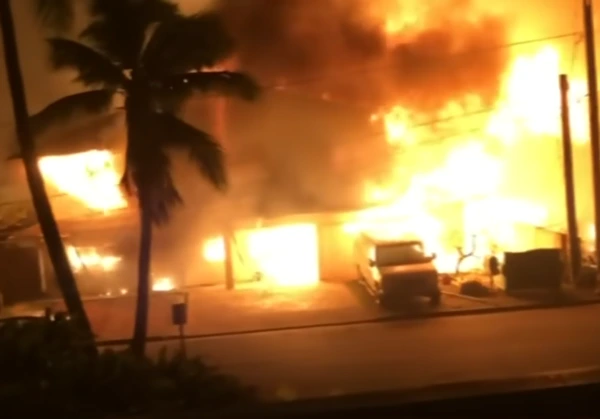
Last month, the median home price in Lahaina was just over $1 million.
This month, half of those homes (almost 2,000) were destroyed or damaged in a wildfire that caused over $3 billion in estimated property damage and killed at least 114 people, with over 800 people still missing even as 90% of the burn area has been searched.
Many of the missing people are likely tourists who quickly fled the island in the aftermath of the fire without realizing anyone was looking for them. Others may be duplicates since some names are only first names or only last names. However, the fire was so hot that it’s also possible that some people were completely cremated, leaving nothing behind — not even bones.
Frustratingly, many of the deaths were preventable, being caused by incompetent local government workers who blockaded the main road out of Lahaina and redirected traffic back into the worst part of the fire. The county Facebook page also told Lahaina residents to shelter in place. In the end, it was the people who violated that directive and drove around the baricades or sheltered in the ocean that ended up surviving.
Local emergency responders also failed to notify the public that the fire had spread for more than an hour after it had already started consuming homes, and the all-purpose emergency sirens in the city were never activated.
For two days after the city had been destroyed and the fire contained, some Lahaina residents whose homes had been destroyed sought refuge in a hotel that had lost power. The people ran out of food, but no emergency aid came despite the hotel being directly accessible by boat and despite there being a still-functional airport down the road. Eventually, many of the people left and found their own way to aid stations.
To add insult to injury, neither Maui’s local government nor FEMA stepped in to restore cell service to Lahaina for several days after the fire. For comparison, in Florida, state emergency response teams have portable cell towers that can be immediately deployed to an area hit by a hurricane or other disaster, along with generators to power those towers if necessary. In Lahaina, portable cell towers only arrived days later.
And as if all of that wasn’t bad enough, local government officials told outsiders that Maui was closed for business. A week and a half later, over 8,000 Lahaina residents have now filed for unemployment, and even the businesses that survived the fire are cutting staff due to a complete lack of tourists. Maui’s local officials are now backpeddling and begging tourists to visit Maui. Lahaina normally contributes almost $800 million a year to the Hawaiian state economy.
Big personal injury law firms like Morgan & Morgan have already filed lawsuits against Hawaiian Electric, a utility company whose downed power lines are suspected of having started the fire. But, given the number of lethal mistakes the local government made, including telling people to shelter at home, I wouldn’t be surprised to see a class action lawsuit against Maui County as well.
References
[2] Morgan & Morgan files lawsuit against Hawaiian Electric for negligence